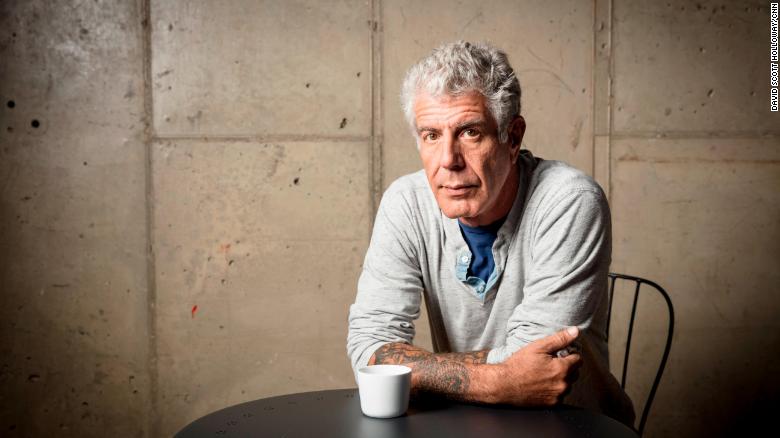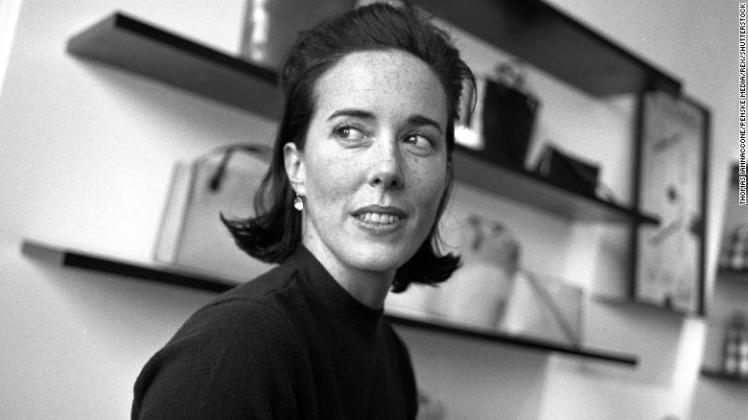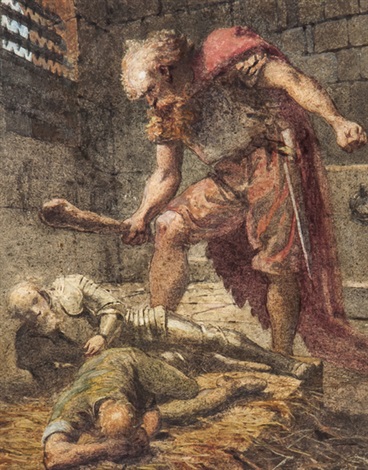Despair and the Key Called Promise

Despair and the Key Called Promise
Despair is… it’s everywhere. It’s become such a part of our experience of life and society. Just a couple weeks ago, I learned that Kate Spade had been found dead in her apartment in New York City. I never bought a Kate Spade handbag but I admired that her philosophy of accessible fashion made a huge impact on women all over the world. Despite that success and adoration, in the end, it was despair that gripped her most.
Then, just some days later, it was Anthony Bourdain, one the most beloved personalities of our age. Bourdain was someone I always appreciated for his love for culture and his willingness to engage people from their experience life.
 The whole week was a shock to many of us. Kate Spade and Anthony Bourdain both committed suicide despite their wealth and their fame. While their suicides were as high profile as death could get, the more tragic truth is that quietly tens of thousands of people in our country are suffering the same fatal despair. In 2016 alone, over 45,000 people ended their lives. In the last 17 years, suicide rates in our country rose an average of 25%, with over half the country experiencing rates increasing by over 30%. There is so much despair in our world… and it feels so much like the darkness is spreading.
The whole week was a shock to many of us. Kate Spade and Anthony Bourdain both committed suicide despite their wealth and their fame. While their suicides were as high profile as death could get, the more tragic truth is that quietly tens of thousands of people in our country are suffering the same fatal despair. In 2016 alone, over 45,000 people ended their lives. In the last 17 years, suicide rates in our country rose an average of 25%, with over half the country experiencing rates increasing by over 30%. There is so much despair in our world… and it feels so much like the darkness is spreading.

This week, at church we learned about John the Baptist and his battle with despair, locked in prison for proclaiming the truth of God to a corrupt nation. He believed that God would provide for and empower him, but he was left to rot alone in jail, confused, hurt, and despondent. We all understand that feeling of despair; it’s endemic in our society and culture today, and God is calling us as the church to engage our world with a message of hope.
This Time, It’s Personal
Many people don’t know that anxiety and depression are things I personally struggle with. After years of summer camp and youth ministry, high energy and smiles too big for your face, it feels weird for me to admit that even to myself. It’s true though. Even just this week I felt myself spiraling down the dark hole of despair. Ideas would pop into my mind left and right; crazy ideas about my lack of worth, weakness, fear. I’d think, “there’s no way out, this is the way things are, nothing’s going to change.”
It spills over into the way I interact with my wife and kids, it makes me want to isolate myself or self-medicate just to escape that feeling of hopelessness. It’s a feeling many of us have experienced before, maybe even feeling now.
The Giant Despair and the Castle Doubt
Some years ago, I read an old book called The Pilgrim’s Progress by John Bunyan. It’s a true allegory, which means where it lacks in readability (you’ll understand in a bit), it makes up for in meaning. As much as I struggle despair and anxiety, there was one particular moment with the protagonist and his friend (named not so subtly “Christian” and “Hopeful” respectively) that helped me understand what my first response to despair needs to be:
Then said the Giant (named DESPAIR), “You have this night trespassed on me, by trampling in and lying on my grounds; and therefore you must go along with me.” So they were forced to go, because he was stronger than they. They also had but little to say; for they knew themselves in a fault. The giant, therefore, drove them before him, and put them into his castle, into a very dark dungeon, nasty and stinking to the spirit of these two men.
Christian then tells his friend that he’s losing hope and wonders if it’s even worth continuing in life:
“Brother,” said CHRISTIAN, “what shall we do? the life that we now live is miserable: for my part I know not whether is best–to live thus, or to die out of hand. ‘My soul chooses strangling rather than life’; and the grave is more easy for me than this dungeon. Shall we be ruled by the Giant?”
 Hopeful counsels his friend, reminding him that his life is not his own, and that despite the bleakness of their present circumstances, there is indeed hope for freedom (hence his name)
Hopeful counsels his friend, reminding him that his life is not his own, and that despite the bleakness of their present circumstances, there is indeed hope for freedom (hence his name)
Finally, the story concludes with a revelation:
Now a little before it was day, good CHRISTIAN, as one half amazed, break out in this passionate speech: “What a fool,” quoth he, “am I, thus to lie in a stinking dungeon, when I may as well walk at liberty! I have a key in my bosom called Promise; that will, I am persuaded, open any lock in Doubting Castle.” Then said HOPEFUL, “That’s good news; good brother, pluck it out of thy bosom, and try.”
Then CHRISTIAN pulled it out of his bosom, and began to try at the dungeon door; whose bolt (as he turned the key) gave back, and the door flew open with ease: and CHRISTIAN and HOPEFUL both came out. Then he went to the outward door that led into the castle yard; and with his key opened that door also.
I wonder if Bunyan had John the Baptist in mind when he wrote this. After all, John himself was locked in a literal prison wondering if his life was a complete waste. While Jesus didn’t get John set free from that prison cell, he did provide for him the key to find freedom from his prison of doubt and despair. It was the truth of the gospel:
Now when John heard in prison about the deeds of the Christ, he sent word by his disciples and said to him, “Are you the one who is to come, or shall we look for another?” And Jesus answered them, “Go and tell John what you hear and see: the blind receive their sight and the lame walk, lepers are cleansed and the deaf hear, and the dead are raised up, and the poor have good news preached to them. (Matthew 11:2-5)
This wasn’t just good news because people were being healed or the poor were finding hope- it was good news because this was the fulfillment of the promise of God to send a Savior, a rescuer that would set the world free from their condemnation. Jesus told everyone that he had arrived to make good on this promise in Luke 4:21 before he began his ministry; now he was telling John that indeed it was happening.
Just like Christian who realized he had the key to his freedom hidden in his heart, God reminds us (me) that we (I) have hope to cut through the lies of despair. Remember the promises of God, that there is now no condemnation for those who are in Christ Jesus (Rm 8:1), that who the Son sets free is free indeed (Jn 8:36), that we are called sons and daughters of God (IJn 3:1), that he knows us (Lk 12:7), wants us (IJn 4:19), and that he’s returning to make everything right again (Rev 21:5).
Does this mean we just need to tell ourselves these things and everything will be better? No. Life isn’t that simple – and the Bible reminds us that we were made for community (Gen 2:18, Jn 13:34, Eph 5:21), that our hearts and spirits are broken and in need of healing (Prov 17:22), that we need to pray and seek wisdom (James 1:5, 5:16) and that may include counseling and therapy.
Given that, we must always start with the promises of God as our foundation. It’s what Jesus offers to John the Baptist even above physical comfort. For me, it’s the ray of light when everything feels engulfed by shadow. It’s the first place my heart knows to run to for comfort and confidence. So many of us find ourselves imprisoned by the Giant Despair; remember the key called Promise that is the promises of God – there’s simply no hope out of the prison of doubt and despair without them.
More in Devotionals
June 3, 2023
Exodus 1 Devotional ThoughtJanuary 18, 2022
Should Christians Be Involved in Politics?December 24, 2020
Advent 2020: Promise
Leave a Comment
Comments for this post have been disabled.